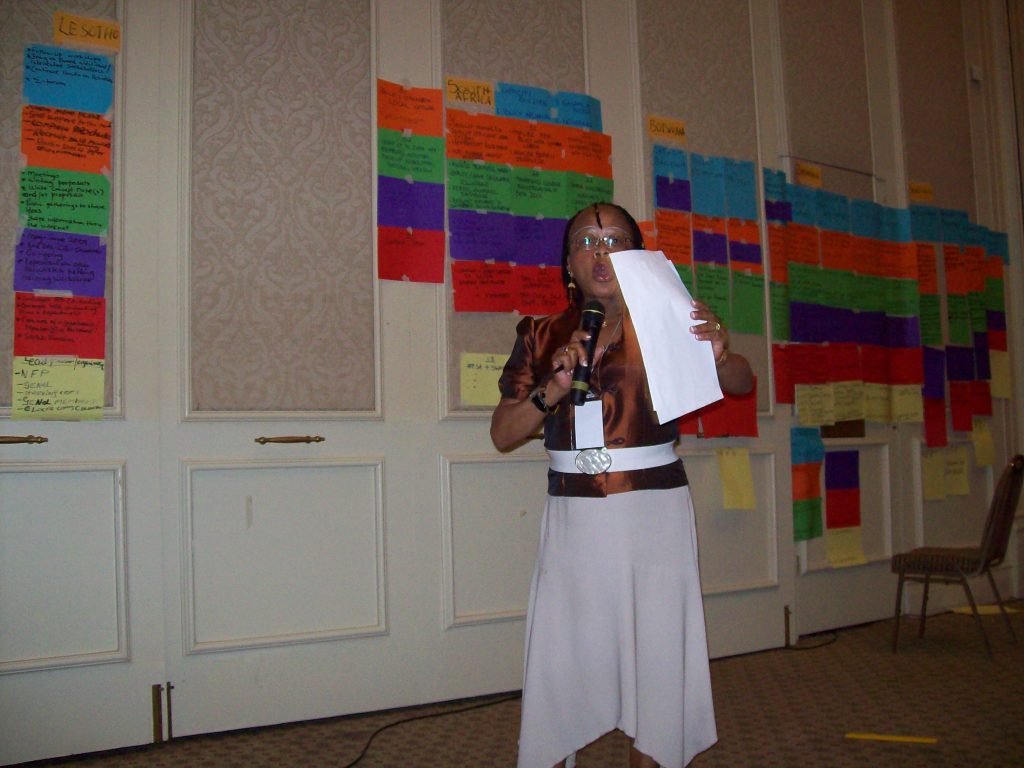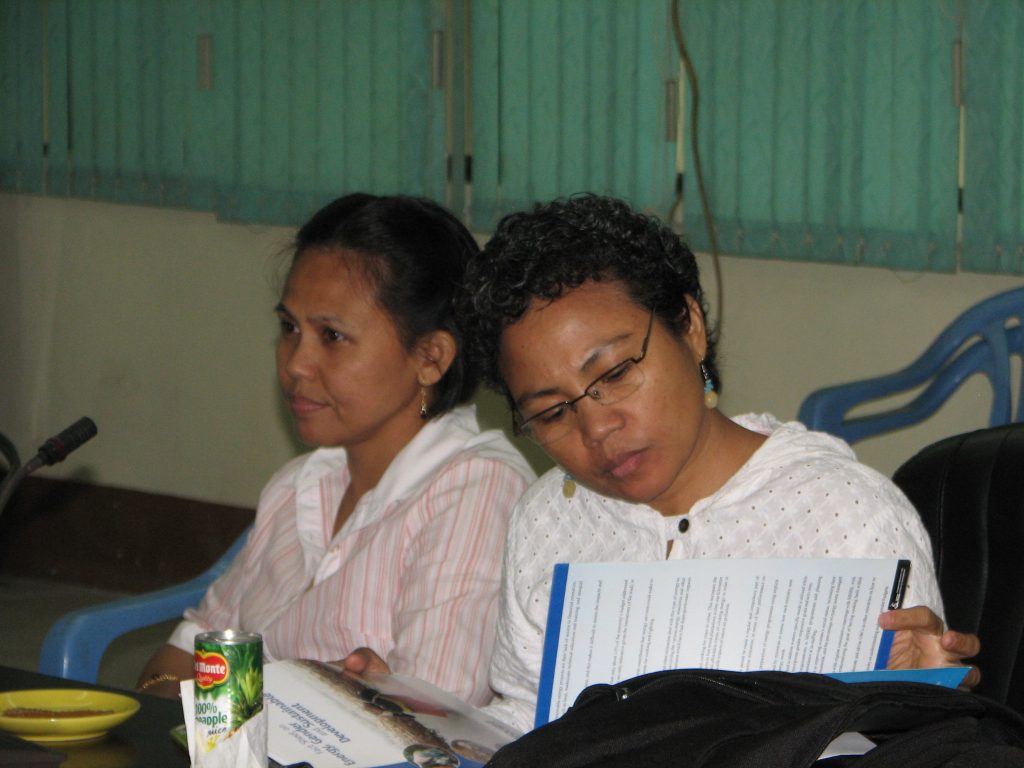PHASE THREE: 2003-2006
Strengthening the advocacy skills from local to national level
-
Building cross-sector partnerships to scale action on Millennium Development Goals (MDGs)
ENERGIA’s work highlighted the urgency to link gender and energy access with other cross-sectoral objectives, such as poverty, education and environmental sustainability. Collaboration with partners and research institutions enhanced opportunities to raise awareness of the ways that energy and gender-sensitive policies can serve the achievement of multiple Millennium Development Goals. This awareness resulted in ENERGIA’s advocacy efforts to include energy in the next Sustainable Development Goals (The 2030 Agenda for Sustainable Development).
-
Understanding that evidence is crucial to informing key decision-makers
Policy makers needed gender-disaggregated evidence and data to assess the situation and develop efficient, appropriate and equal policies that leave no one behind. At the time, and still today, the lack of data on gender and energy and its interlinkages remained the major obstacle to making energy projects and programs more gender-responsive and sensitive.

-
Influencing decision-making through meeting and workshop participation
Women continued to be underrepresented in energy discussions and excluded from decision-making processes. One of the essential requirements for empowering women was to mainstream gender into the policies and programs of institutions engaged in the energy sector and to give a seat to organisations representing women and women themselves.
-
Using gender audits to modernize energy policy
Gender audits provided in-depth analysis of energy planning, budgets and the institutional capacity of ministries to implement gender-mainstreaming strategies. These audits were carried out under the ‘Turning Information into Empowerment: Strengthening Gender and Energy Networking in Africa (TIE-ENERGIA)’ project implemented within the framework of ENERGIA Africa, with co-funding from the European Union, the Swedish International Development Cooperation Agency (SIDA) and Directorate-General for International Cooperation (DGIS).
-
Strengthening our advocacy capacity through manuals, training and toolkits
ENERGIA approached Phase 3 with the awareness that very little progress had been made in incorporating gender in the design, implementation and monitoring of energy projects and programs. Gender-blind interventions resulted in a weak capacity to address the energy and basic needs of rural women in communities we work with. ENERGIA increased its efforts to support stakeholders in reinforcing gender and energy perspectives into policies and programs.

Follow us on: